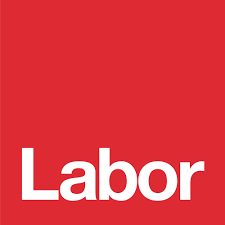August 2024 Monthly column
By Janelle Saffin MP
I WELCOME the announcement that the NSW Government will extend retail trading restrictions to cover all of ANZAC Day to ensure the service of veterans is recognised and people are able to take part in services throughout the day.
Currently, retail traders such as supermarkets and fashion retailers are only required to stay closed until 1pm under the Retail Trading Act. From next year, the change will see them remain closed until midnight.
The restrictions do not apply to small businesses and business not considered retailers or with exemptions such as markets, cafes, chemists, newsagencies and takeaway restaurants.
As Premier Chris Minns said “It might be inconvenient for a few hours, but closing our biggest corporate shops for a single day is a small price to pay for living in a free and open democracy”.
NSW Fair Trading is warning consumers to beware of ‘dark patterns’ when shopping online.
Dark patterns are tactics websites or apps use to manipulate or trick you into spending more money than you’d planned or providing personal data that’s not needed.
These are some common dark patterns to look out for:
Hidden costs
Hidden costs are extra costs you only find out about towards the end of your purchase, or which are made less obvious. They include pre-selected extras you may not want.
Some hidden costs are even sneakier, such as a pre-selected free trial period for a service that renews automatically if you don’t cancel before it ends.
Forced continuity
Forced continuity refers to subscriptions that are easy to sign up to, but hard to get out of.
You may only have to provide basic details to subscribe for a product or service, but to cancel you may need to go through multiple steps.
Trick questions
Trick questions are commonly used for subscriptions, auto-purchase agreements and data collection.
For example, if you’re trying to cancel a subscription, you may be asked if you really want to cancel and given two options: ‘Continue’ or ‘Cancel’. This may be intentionally unclear, where ‘Continue’ means continuing the cancellation process and ‘Cancel’ means stopping the cancellation process. You may think you’ve cancelled the subscription until you are charged another subscription fee.
Scarcity cues
Scarcity cues are designed to create a fear of missing out, which pushes you to make rushed decisions about buying or spending more than you planned. Examples are countdown timers for shopping carts or notifications about low stock (e.g. ‘Only 4 left’).
Activity notifications
Activity notifications tell you what other people are doing on a website or app (e.g. ‘15 people are currently looking at this hotel room’). These notifications will appear seconds apart and often be bundled with scarcity cues to create a sense of urgency.
Data grabs
A data grab is when businesses ask you for more information than they need to process your request.
Have you ever had to provide your full name and postcode when subscribing to a newsletter? Or had to provide your date of birth for a purchase? That’s a data grab and you should be concerned about what the business plans to do with your information and how securely are they storing it.
Disguised advertisements
Disguised advertisements are often ‘clickbait’—a sensationalised or misleading headline or link, designed to make you click through to online content.
They are designed to look like genuine content or search results but will instead redirect you to a product or service.
These are just some of the ‘dark patterns’. The NSW Fair Trading website has more information with helpful screen graphics of what to look out for.https://www.nsw.gov.au/departments-and-agencies/fair-trading/dark-patterns

